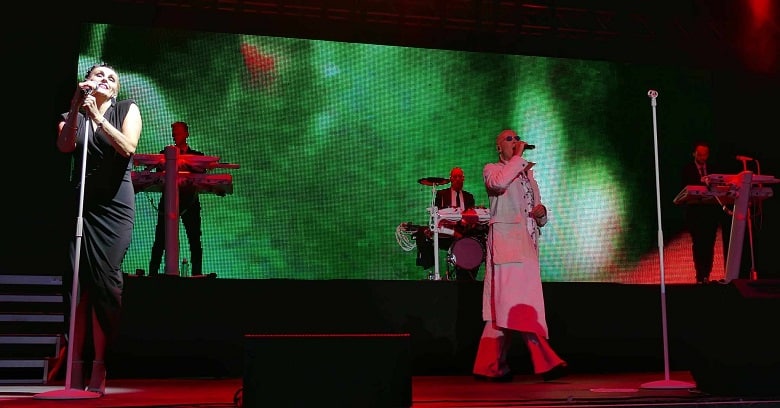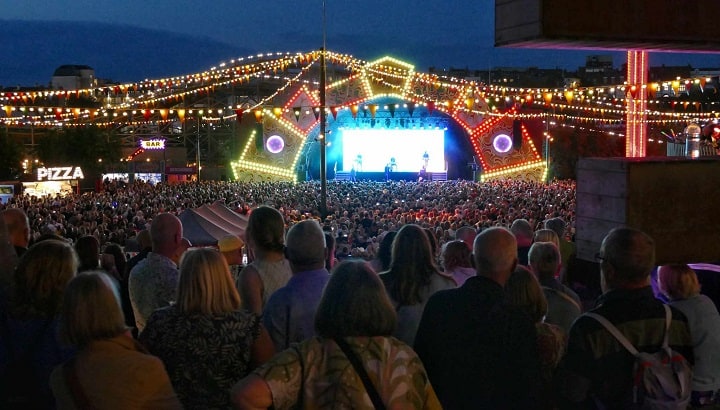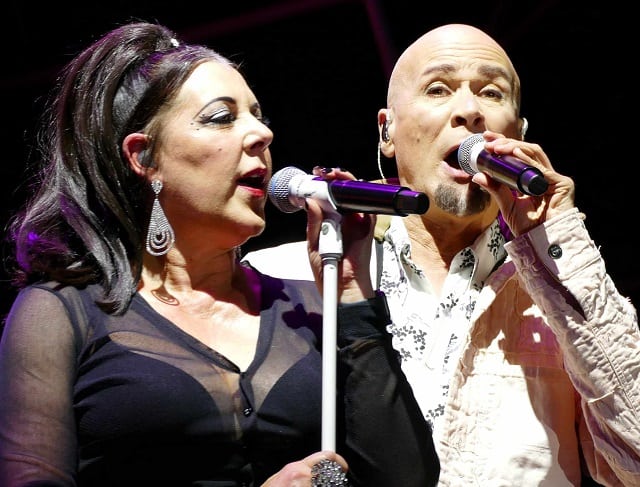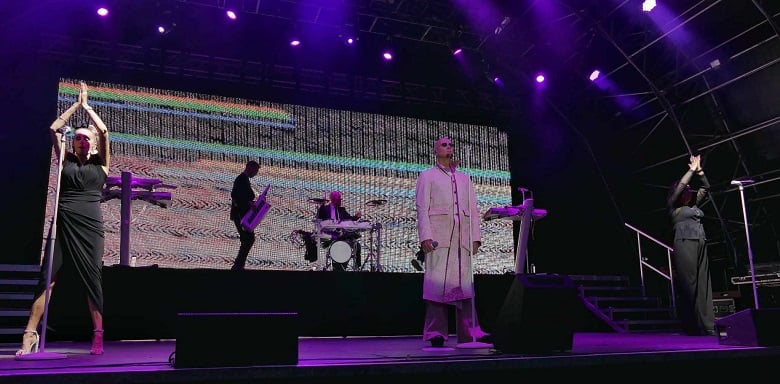
By Dan Thompson
It’s surprising that a band who trade mostly on nostalgia can still sound contemporary, but The Human League pulled that trick off with their set at Dreamland.
From the punchy synth drum opening of The Sound of the Crowd, the band sounded hard, clear and focused. They matched the sound with a strong visual, two keyboard players stage right and left and drummer centre stage were often just silhouettes against a video screen backdrop.

When they formed in Sheffield in 1977 as a Korg-and-Roland alternative to punk, they could only have dreamed of that technology and the visual impact it gave them last night.
With the backdrop of the Scenic Railway and the lights chasing up the drop tower, it all felt a bit dystopian future.
The Human League were, of course, always looking to the future (they took their name from a sci-fi boardgame, where the Human League rise against the mainstream earth society in 2415AD). But this gig felt like they have caught up with their future.

The big hits still feel fresh – as I said, this is not just nostalgia, even if Pacman makes an appearance on the screen – and with a big band on stage they have an extra depth now. While the original The Sound of the Crowd is a tinny period piece, last night’s version was probably how the band always imagined it, tough and hard. All the hits were here – Mirror Man, (Keep Feeling) Fascination, Love Action, and at the end of the main set, Don’t You Want Me.
And they’re a band with more than one texture, too. The Lebanon added waves of choppy guitars, as befits the band’s most obviously political period, when they drifted into U2 and Simple Minds territory.

And Being Boiled, the first of two encores, was heavy and industrial, not a million miles from the darker, gothic sound of Nine Inch Nails. It’s a reminder that the band’s first incarnation, singer Philip Oakey with keyboard players Martyn Ware and Ian Craig Marsh, was a far edgier, more experimental band than the one that had the hits.
After Ware and Marsh left to form Heaven 17, 25-year-old Oakley recruited two 17-year-olds, Susan Ann Sulley and Joanne Catherall, who he found at a local nightclub. They created an unmistakeable sound, with Oakey’s distinct and dramatic voice offset by the lighter, sometimes petulant, female voices. Nobody else (except Younger Younger 28s, a deliberate homage) has ever sounded like them. That trio still form the core of the band, and it’s obvious that where some singers lose range with age, they all sounded as good, if not better, than they ever did.
They ended with the one that’s not like the others, Giorgio Moroder’s Together In Electric Dreams which had Oakey on guest vocals. It felt like a joyful, euphoric moment, with a band reaching a new peak. Who needs dreams, when real life is this good?

